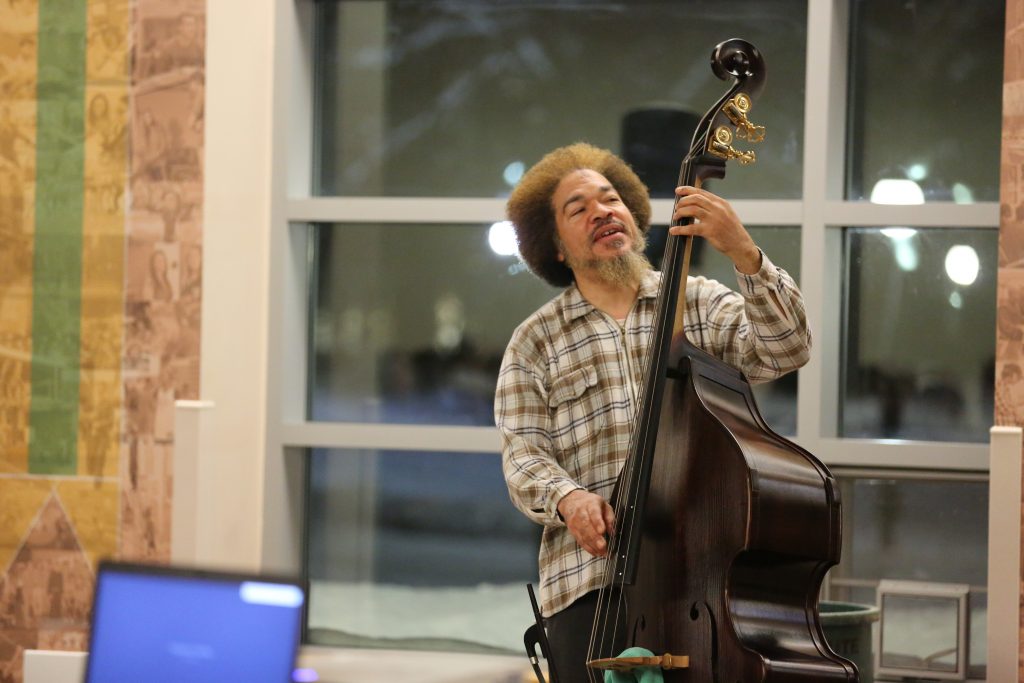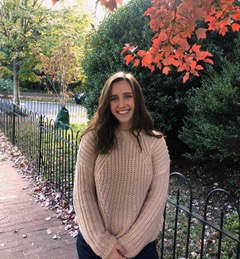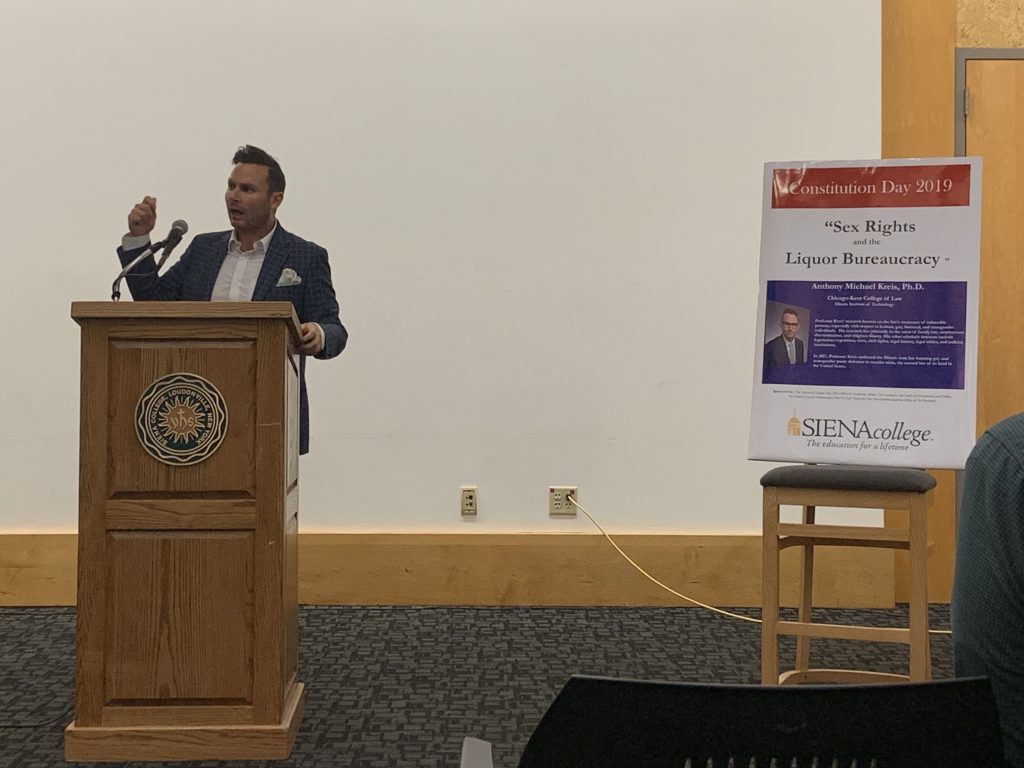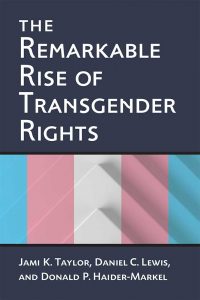By: Jillian Fiddler and Libby Kane
In 2014 Christopher Donato graduated from Siena College with an American Studies Major and minors in Broadcasting and Creative Arts. Today, he is an Emmy winning ABC News Field Producer and is currently reporting on the crisis in Ukraine from the Poland/Ukraine border. Donato has graciously taken the time to answer our questions and provide both his own pictures and insight into the tragedy that is unfolding in Ukraine, as well as how Siena has prepared him to be successful in this line of work.
What is your current role/title, and what does it entail?
I am a Field Producer at ABC News, mainly covering breaking news. Wherever the story is, I get sent (and there are plenty of middle-of-the-night wake up calls). I work with a correspondent/anchor to pitch stories, to find elements for pieces (video, interviews, etc.), scout locations for us to be live from, and get the corresponde/guest on tv.
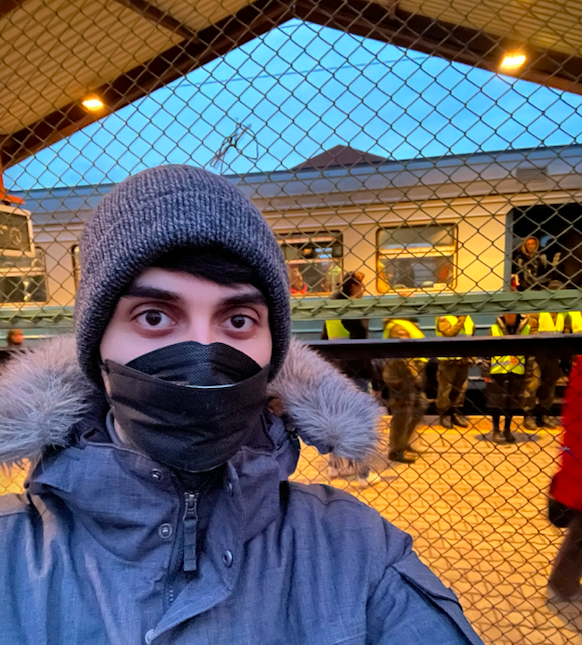
How long have you been in Poland?
I arrived Sunday, Feb 27. I was actually supposed to head to London to fill in our office there, but was asked to change my plans at the last minute and reroute to Poland.
How long do you plan to stay in Poland?
Great question! We’ll be here for as long as we’re needed to be here.
Do you have any safety concerns for yourself?
No – everyone in Poland has been extremely welcoming.
How has what you learned and the skills you developed at Siena helped you in your current work?
One of the main things I learned at Siena was to listen and show empathy. When we’re talking to the refugees, it’s so important to listen to them and show them empathy. Some of the people have told us their homes have been bombed – so they really only have what few possessions they carried with them to Poland. Some have told us about their husbands/brothers/fathers/sons staying back in Ukraine to fight and protect their homeland.
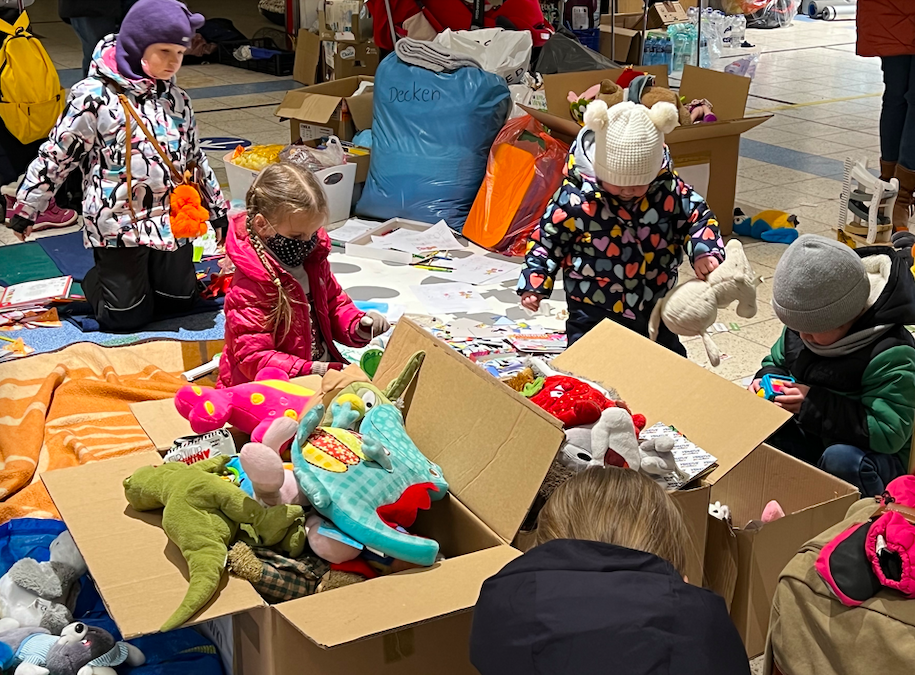
Is there anything that we can do to help the Ukrainian people?
The head of the UN refugee agency (UNHCR) has asked that people donate to big organizations instead of donating small items; he said that by sending money to the organizations, they can purchase what is actually needed and have it brought to the locations easier than private donors can. We’ve seen several aid organizations here helping – the Polish Red Cross has been at several of the refugee reception centers and we’ve seen World Central Kitchen (a non-profit that sets up kitchens and distributes food at disasters) at the border crossings and reception centers at all hours of the day handing out tons of warm meals. For many of the refugees, this is the first warm meal they’ve had during their journey…which for some people, has lasted 5+ days.
What has been the most challenging thing for you to witness while in Poland?
The second night we were here, we went to the border crossing in Medyka and we watched as refugees came across the border into Poland from Ukraine. There’s no way to really describe it…some people were just so exhausted from their journeys, that they could barely walk. It wasn’t a limp. It wasn’t a walk. There really is no way of describing how their exhausted strides looked. Some told us they walked 20, 30, 50+ kilometers (12, 19, 30 miles) to get to the border. They had a look of confusion on their faces too. Greeting them in Poland were all these volunteers with hot meals and donated clothing, but they didn’t realize it was all free for them. The other challenging moment to witness was just last night; we went to the Ukrainian House – it’s typically a cultural and arts center in a town near the border that puts on programs introducing people to Ukrainian culture. It’s been turned into a temporary housing shelter for refugees. They brought us to one room where kids are in the back playing and laughing, but in front of them were their mothers/grandmothers/aunts sitting at a table with a total look of despair on their faces. They brought us to their auditorium which, just 2 weeks ago, would be home to plays and shows. Well, now it’s filled with cots for refugees to spend a night sleeping. One of the organizers almost started to cry when she told us about the refugees and her fears: she said during the first wave at the beginning of the fighting, refugees came with several large bags and their pets, but over the two weeks refugees have been coming with less and less. Those who arrived yesterday came with just a backpack each. She said she was really worried about those coming from Eastern Ukraine in cities like Mariupol where the fighting is very strong. She worries that those refugees are going to have absolutely nothing with them.
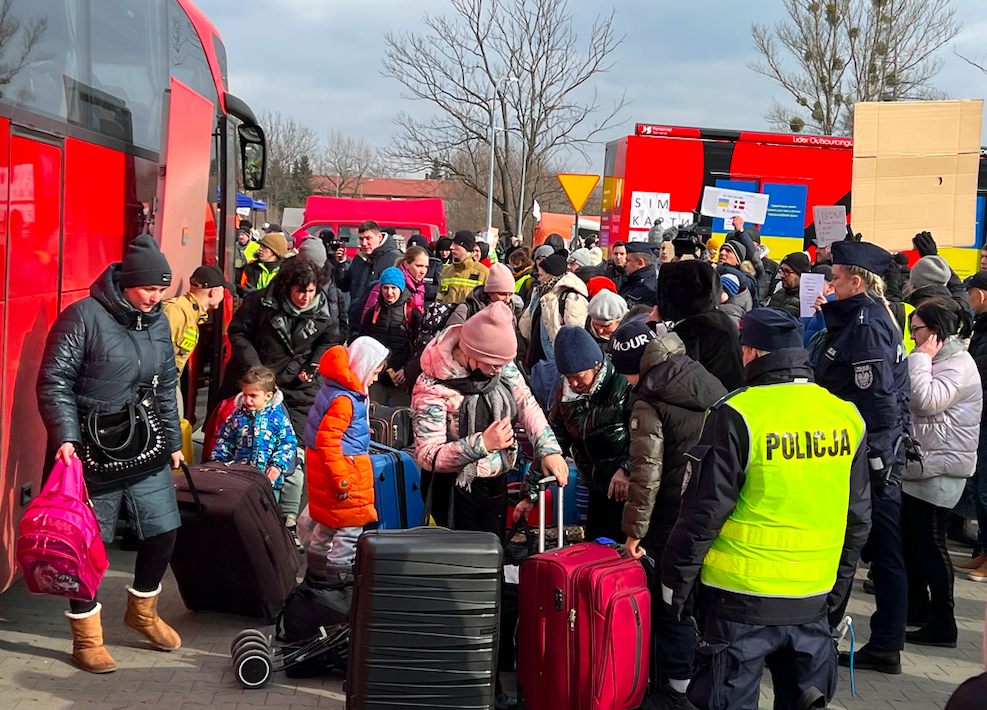
While you were at Siena did you ever expect to see yourself working on a job like this?
No – I actually had no idea I wanted to go into journalism when I got to Siena. I wanted to either become a pediatrician or a high school history teacher (I know, they are so similar!). Once I realized I wanted to become a journalist, I thought I would be at the local level in a large city in the United States. I never thought I would be working at a news network traveling to big stories around the world.
Do you think that by being at Siena and learning about Social Justice, you are better equipped with an understanding of these kinds of situations?
*The social justice courses were instituted into the core curriculum after Christopher graduated*
It’s important to learn about social justice through Franciscan lens because you really never know when you’ll be faced with a situation like this. I never thought I’d be across the world talking to refugees fleeing war in their homeland and having the empathy to understand them and help them.
Anything else you would like to add?
We cannot undersell how amazing the Polish people have been. I would say 98% of all the work we see being done for the refugees has been from volunteers. Usually you would expect a majority of the work to be from the government with a small fraction from volunteers. Totally opposite here. And people are coming from all over Europe to help. Yesterday we met three volunteers who filled a truck full of donations in Germany and drove 10+ hours to drop it off here. People hold signs at refugee reception centers (large areas where refugees are brought to by bus once they are processed at the border) with cities listed on their sign. That’s where they are offering a free ride to refugees…some as far as Sweden, Amsterdam, cities across Germany, Poland…I think the furthest we’ve seen is about a 15-20 hour drive. It’s really incredible seeing the best of humanity in the worst of circumstances.
We appreciate everything Donato is doing over in Poland and are very proud that he is a member of Siena’s wonderful Alumni community!
To donate and aid in help for the Ukraine crisis click here.
You can follow Christopher Donato’s experience in Poland @chrisdonato04
